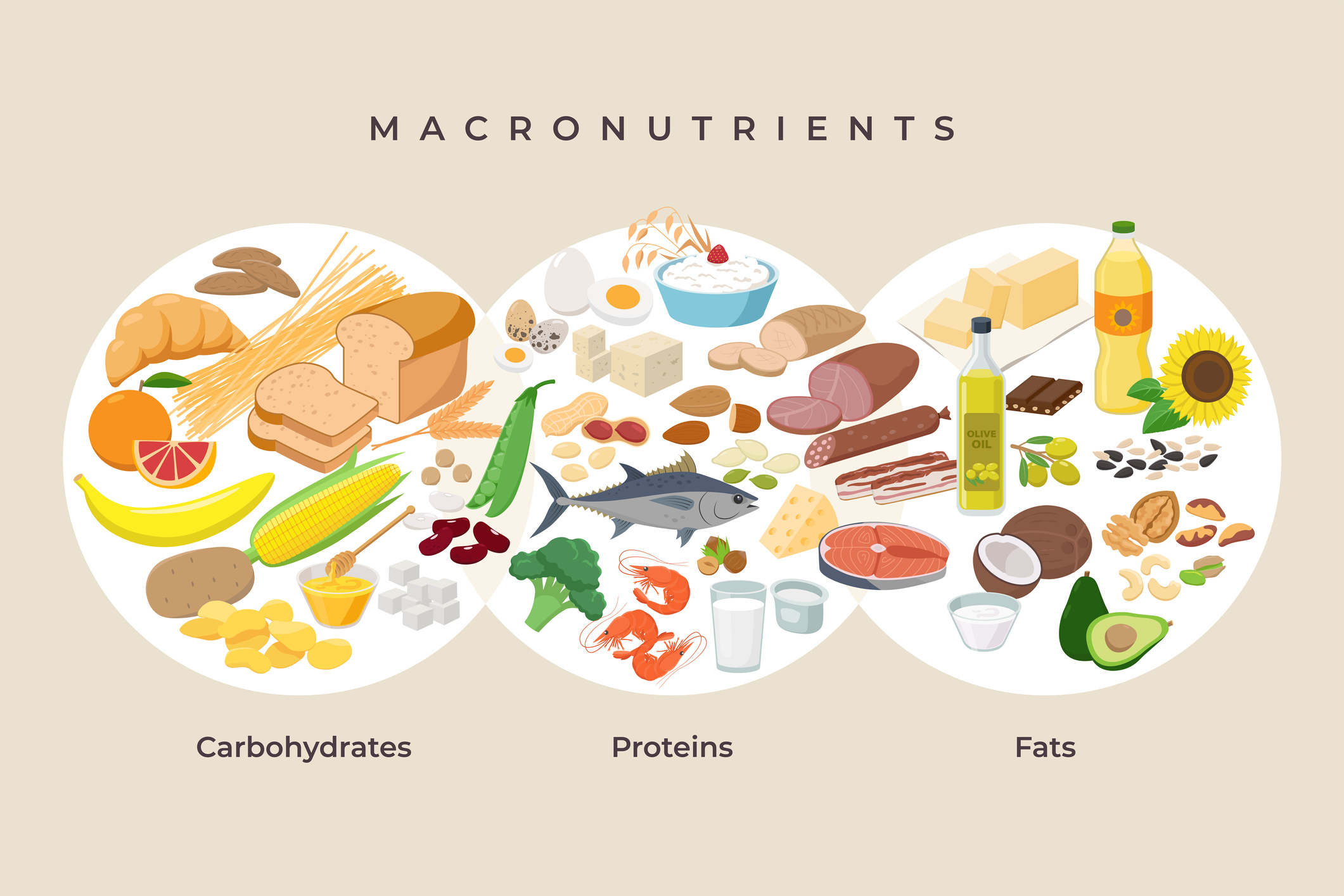
What is a “macro”?’ Well, it’s short for “macronutrients”, three nutritional compounds (carbs, protein and fat) that your body needs in significant qualities to function every day. Along these lines, you may have heard of the “If It Fits Your Macros” Diet (IIFYM), a flexible eating style that focuses on macros and calories. The idea behind IIFYM is that you calculate your optimal macro intake based on your gender, height, weight, estimated body fat percentage, activity level and goals. You’re given a macronutrient target of how many grams of protein, carbs and fat you should eat each day, as well as a daily calorie limit. There are no “good” or “bad” food choices. Everything is fair game, as long as you hit your macros and count (and restrict) your calories. Hypothetically, a day’s worth of eating could consist of ice cream and pizza. IIFYM teaches you that if you eat fewer calories than your body requires, you will lose weight at a steady and predictable rate. And while it’s possible to lose weight while eating cookies, candy and chips as long as you’re maintaining a calorie deficit, it’s not just as simple as “calories in/calories out”.
When your focus is on low-quality calories, you may suffer the consequences. Your body does not perform optimally, especially if the majority of your calories come from highly processed food containing little fiber or nutrients. These foods also tend to be less filling, leading you to crave and binge more. And while a carb is a carb when it comes to macronutrients, we know that carbs have the most profound effect on your weight and health. Not all carbs are created equal. Simple carbs such as those found in processed foods break down quicker and have more of an impact on your blood sugar. Meanwhile, it takes your body longer to break down complex carbs, lessening their impact on your blood sugar. In other words, your food choices shouldn’t just be about hitting a number, but how they impact your blood sugar levels, energy, weight and overall health.
While IIFYM can work, over 100 clinical studies support Atkins’ low carb approach, which is far less complicated and emphasizes high-quality macros coming from fiber-rich veggies and low glycemic fruits, nuts, optimal amounts of protein and healthy fats. During weight maintenance phase even whole grains can be added. When your macronutrients work together in this manner, the result is more effective weight loss and better health markers. Plus, Atkins can be customized with Atkins 20, Atkins 40 or Atkins 100 to meet your individual needs.